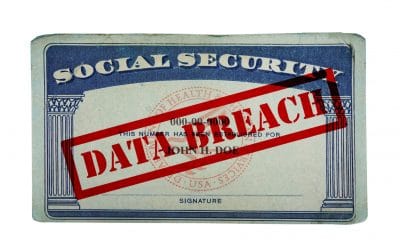According to the Federal Trade Commission, about 143 million Americans had their credit information like Social Security numbers, birth dates, addresses, and even some driver’s license information stolen from one of the three largest credit-reporting agencies. The hackers also copied over 200,000 credit card numbers. This happened this summer between May and July. If your credit card information was breached then you probably already know because the bills have come.
Equifax has responded to the breech by offering anyone who enrolls a year of free credit monitoring. To determine whether your credentials were compromised click here on a secure computer https://trustedidpremier.com/. I found that my data had been compromised but not my wife’s. Whether or not your data was affected, you can take advantage of Equifax’s year of free credit monitoring here.
Monitoring new credit does nothing about accounts that might have been opened already. You can check each of the big three reporting agencies for free once a year here, https://www.annualcreditreport.com/index.action. If you see problems then you can get some help from the Federal Trade Commission here, https://identitytheft.gov/.
Identity theft is big business and identity protection companies have risen to the challenge. If you Google “identity theft protection” you will find dozens of companies willing to take your money to protect your identity. Many believe that the identity protection companies are themselves scammers. Consumer reports reported “Capital One and Discover Financial Services agreed to pay a combined $410 million in refunds and penalties related to deceptive marketing of identity protection, credit monitoring, and other services. Prior to that, Affinion, Experian Consumer Direct, and LifeLock had been caught and punished for alleged deceptive marketing practices.”
Most cases of identity theft involve the breach of a credit card or a fraudulent tax return. There is not much that any company can do to prevent that from happening. Most of the things that you need to do when your identity has been used you can really only do yourself. The company can tell you what you need to do but usually cannot do it for you. If someone does use your credit card information then the most you can be held liable for is $50 but I have never heard of an instance where the credit card company actually charged a consumer $50 because their card had been breached. On the other hand, if you do not confirm the charges on your monthly statements and just pay them you can end up paying some crook’s charges.
Your best bet is to keep a close eye on your account balances whether on your computer, smart phone, or monthly statements. Credit monitoring is not a bad idea either. Last year someone was able to open an American Express card in my name. I was notified that a new account had been opened by a credit monitoring service sponsored by my bank. It costs me twelve dollars a month. They attempted to have my address changed by the post office and failed so the new card was mailed to me. I was expecting the card, had already called American Express, and had then cancel the card. I am notified every time someone reviews my credit at a reporting agency, issues new credit, and a quarterly update that reminds me to go online at their sight and make sure that none of my creditors has reported me as delinquent.
Credit is important and restoring it if someone has stolen your identity can be burdensome. Keep track of your credit data and monitor your activity frequently.

